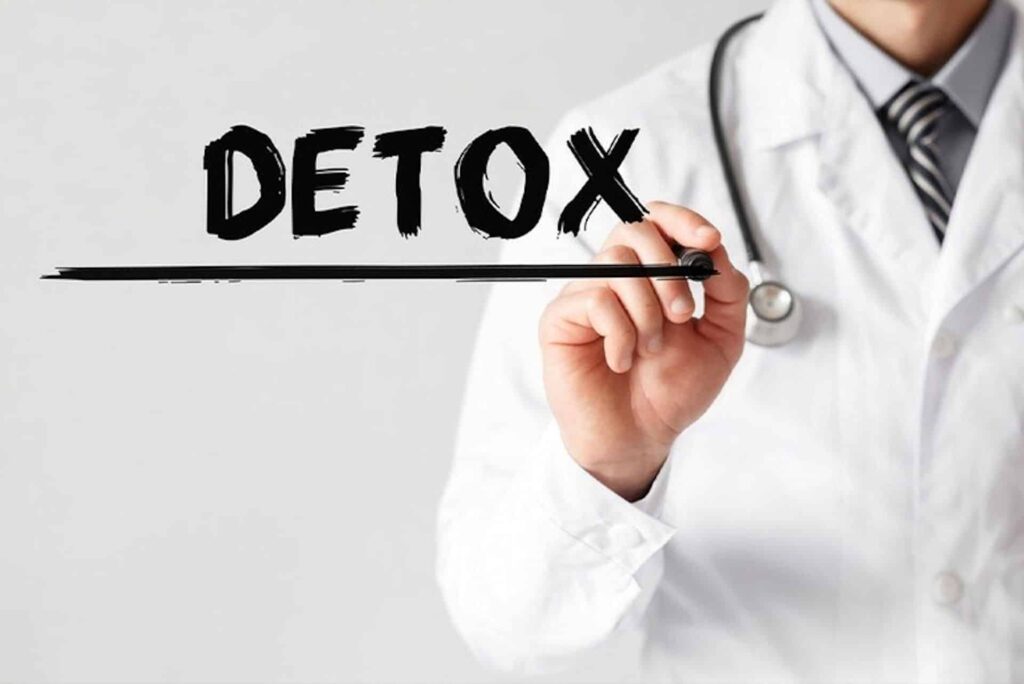Withdrawal Management 101: A Guide to Navigating Detox
The National Institute on Drug Abuse (NIDA) has released data stating at least 20.4 million American adults suffer from substance use disorder in 2021, and of that number, only 10.3% have received any kind of treatment for the condition. This is an alarming fact considering that in 2019, at least 71,000 people died of drug overdose-related causes. Part of the reason for the low turnout in treatment is believed to be the prevalent fear of medical detox, although if more people knew more about withdrawal management, they would probably be more willing to go through rehab.
For the most part, people are utterly afraid of medical detox because of how difficult it is for everyone who goes through it, but no one talks about how much better their lives become once they get through it, which is something that more people should look into rather than the pain and suffering of medical detox, which withdrawal management completely mitigates.
At 449 Recovery in Mission Viejo, California, withdrawal management can help manage life-threatening symptoms during detox safely and effectively.
What is Withdrawal Management?
 Withdrawal management is another term for medical detox and refers to the medical and psychological care for people who are experiencing withdrawal symptoms that follow when a person stops using alcohol or drugs.
Withdrawal management is another term for medical detox and refers to the medical and psychological care for people who are experiencing withdrawal symptoms that follow when a person stops using alcohol or drugs.
Medical detox can be managed through our outpatient program in orange county. Substance abuse of any kind will inevitably lead to heavy dependence on the substances abused, making it immensely difficult for the person to quit or even reduce their drug or alcohol use. In many cases, the person undergoing withdrawal suffers intense physical symptoms that are unbearable, requiring the need for medications just to mitigate the agony they feel.
Withdrawal management is mainly focused on helping patients manage the highly distressing experiences that accompany medical detox. In other cases, the symptoms go from being merely distressing to actually becoming life-threatening, in which case the process of withdrawal management focuses more on keeping the patient from succumbing to complications or serious health risks. Withdrawal management becomes particularly helpful in cases where patients suffer from violent symptoms such as seizures or delirium tremens.
What Types of Substance Abuse Require Withdrawal Management?
All types of substance abuse disorders require a medical detox to quit. In most cases, patients suffer a variety of withdrawal symptoms, depending on the type of substance to which they were addicted. While others could be handled with a little effort, some symptoms come with specific types of substance abuse that most patients are not able to manage on their own. These include:
Heroin addiction in the US is classified as being at an epidemic level, as the National Institutes of Health (NIH) puts the number of Americans with a heavy dependence on heroin at 500,000. The NIH admits that following the trend in the statistics, there are no indications that heroin use in the US will go down anytime soon. Heroin is a powerful opioid, and is categorized by the US Drug Enforcement Agency (DEA) as a Schedule I drug, meaning it has no medical use. Other opioids, however, are regularly prescribed as painkillers, mainly because one in every five Americans suffers from chronic pain.
Opioids are known to bind to the opioid receptors in the brain, blocking the sensation of pain while producing a sense of calm. Opioid addiction requires withdrawal management because the re-introduction of the patient to the ability to feel pain once they are off opioids is said to be nothing short of agonizing. It is not uncommon for many people undergoing opioid rehabilitation to slip into relapse and use opioids once more to deal with the distress they feel.
Examples of popular prescription opioids include:
- Percocet
- Vicodin
- OxyContin
Symptoms of opioid withdrawal include:
- Muscle aches
- Muscle spasms
- Insomnia
- Runny nose
- Nausea
- Vomiting
- Abdominal cramps
- Diarrhea
- Anxiety
- Depression
- Irritability
- Rapid heart rate
- Chills
- Profuse sweating
The National Center for Drug Abuse Statistics (NCDAS) reveals that one in every ten Americans over the age of 12 has an alcohol use disorder. This number is made even more alarming by the fact that 140,557 Americans die each year from alcohol-related causes. Alcohol is held to be responsible for at least 6% of all deaths globally, and this number is steadily growing each day as people continue to imbibe alcohol in alarming quantities, particularly those who regularly indulge in binge drinking.
Most people find it difficult to stop taking alcohol mainly because it is a central nervous depressant, which steadily sedates the brain over time while also inducing the release of endorphins, the neurotransmitter associated with pleasure. Alcohol, however, also significantly impairs speech, cognition, reaction time, and muscle coordination.
Continued alcohol use often results in these impairments becoming pronounced and long-term, manifesting even when the person has not imbibed alcohol yet. What’s more, the nervous system becomes heavily dependent on the presence of alcohol over time and the lack of it will almost immediately result in withdrawal symptoms. This is why most people who have an alcohol use disorder require withdrawal management to facilitate recovery fully.
Symptoms of alcohol withdrawal include:
- Poor concentration
- Restlessness
- Irritability
- Anxiety
- Fever
- Disruption of sleeping patterns
- Nausea
- Vomiting
- Profuse sweating
- Tremors
- Hallucinations
- Seizures
- Confusion
- Tachycardia (increased heart rate)
- Hypertension (elevated blood pressure)
- Delirium
Severe cases of alcohol withdrawal have the potential to become life-threatening, particularly when severe confusion, hypertension, seizures, and delirium set in. This is why medical detox for alcohol should always be done in a facility that is intended for it.
Statistics taken from the National Institute on Drug Abuse indicate that in 2020, at least 16% of all overdose deaths involving opioids also involved benzodiazepines. Benzodiazepines also referred to colloquially as “benzos”, are a type of prescription sedative commonly prescribed for anxiety or insomnia. This substance can induce sedation or calm a person by raising the level of the neurotransmitter gamma-aminobutyric acid (GABA) in the brain.
As such, benzos, which are categorized as a Schedule IV drug, are mainly used as central nervous system depressants, particularly helpful in dealing with severe anxiety and panic. Some of the more common benzodiazepines include:
- Diazepam (Valium)
- Alprazolam (Xanax)
- Clonazepam (Klonopin)
- Lorazepam (Ativan)
Benzodiazepine withdrawal symptoms include:
- Headaches
- Anxiety
- Muscle spasms
- Tremors and twitches
- Restlessness
- Irritability
- Nausea
- Vomiting
- Profuse sweating
- Chills
- Seizures
- Weakness
- Blurred vision
- Drowsiness
- Impaired cognitive functions (judgment, thinking)
- Mood swings
People who get hooked on benzodiazepines tend to quickly develop a tolerance for it, causing them to continually increase the dosage that they are taking. This increase in dosage results in the addiction becoming more powerful even as the damage from benzodiazepine use becomes more pronounced. Patients seeking to quit using benzodiazepines almost always need benzodiazepine detox to mitigate the severe urges to use the substance once more.
The Centers for Disease Control and Prevention released a report in 2020 stating that at least 500,000 Americans aged 12 and older had a stimulant use disorder. The majority of stimulant is mostly seen as coming from misused prescriptions issued by physicians or psychiatrists. Stimulants are among the earliest substances apart from alcohol that people get into, with many teenagers experimenting with them for their “enhancing” properties.
Stimulants work directly on the central nervous system to increase alertness, enhance cognitive function, and give a general feeling of being energetic. This substance increases the amount of the neurotransmitters dopamine and norepinephrine in the brain, which in turn improves concentration and decreases the fatigue common in individuals who suffer from attention deficit hyperactivity disorder (ADHD). Stimulants are highly addictive, with most people getting hooked on them almost immediately even with just the first use.
The most common stimulants used today include:
- Amphetamines
- Caffeine
- Nicotine
- Cocaine
- Synthetic cathinone
- Methamphetamine
The most common prescription stimulants include:
- Adderall
- Ritalin
- Dexedrine
- Concerta
- Desoxyn
- Ephedrine
Stimulants work directly on the central nervous system, and people hooked on them tend to take them in ever-increasing amounts, practically ensuring that once a medical detox is initiated, severe withdrawal symptoms will manifest quite quickly.
Stimulant withdrawal symptoms include:
- Intense cravings
- Disruption of sleep patterns
- Significantly impaired cognitive function
- Extreme mood swings
- Chills
- Body aches
- Tremors and twitching
- Fatigue
- Exhaustion
- Difficulty concentrating
- Depression
- Anxiety
As people hooked on stimulants steadily increase the dosage they take, an overdose is not an uncommon incident. People close to or are already experiencing stimulant overdose will manifest the following symptoms:
- Dangerously fast heartbeat
- Hyperventilation
- Significantly dilated pupils
- Chest pains
- Muscle cramps
- Seizures
- High fever
- Dizziness
- Unconsciousness
- Convulsions
- Seizures
- Cardiac arrest
Choose 449 Recovery for Withdrawal Management
Getting well is not always as easy as most people would want it to be. This is particularly true for people who are undergoing addiction treatment in Orange County, CA, as many of them would need withdrawal management to deal with the agony and difficulty of the process.
This is something we know by heart because we have helped people through the worst of it. We know what it is all about, and we will always be more than willing to help anyone who needs it so they could get better. Talk to us now.

Dr. Warren Taff MD, graduated from the University of Birmingham, England School of Medicine, with a BA from Rutgers University. He then went on to UCLA School of Public Health in Los Angeles Health and Human Services and received an MPH. He also attended an internship in internal medicine, with the Veterans Administration. Dr. Taff’s residency includes General Psychiatry at USC, with elective residencies at the Royal Prince Alfred Hospital in Sydney, Australia, and Royal College of Psychiatry. Board certifications include American Board of Psychiatry and Neurology. Dr. Taff has extensive experience in both psychiatry and addiction medicine, extending from 1979 to present. He has held professional titles that include Chief of Staff and Medical Directorship in both hospitals and private sectors.






